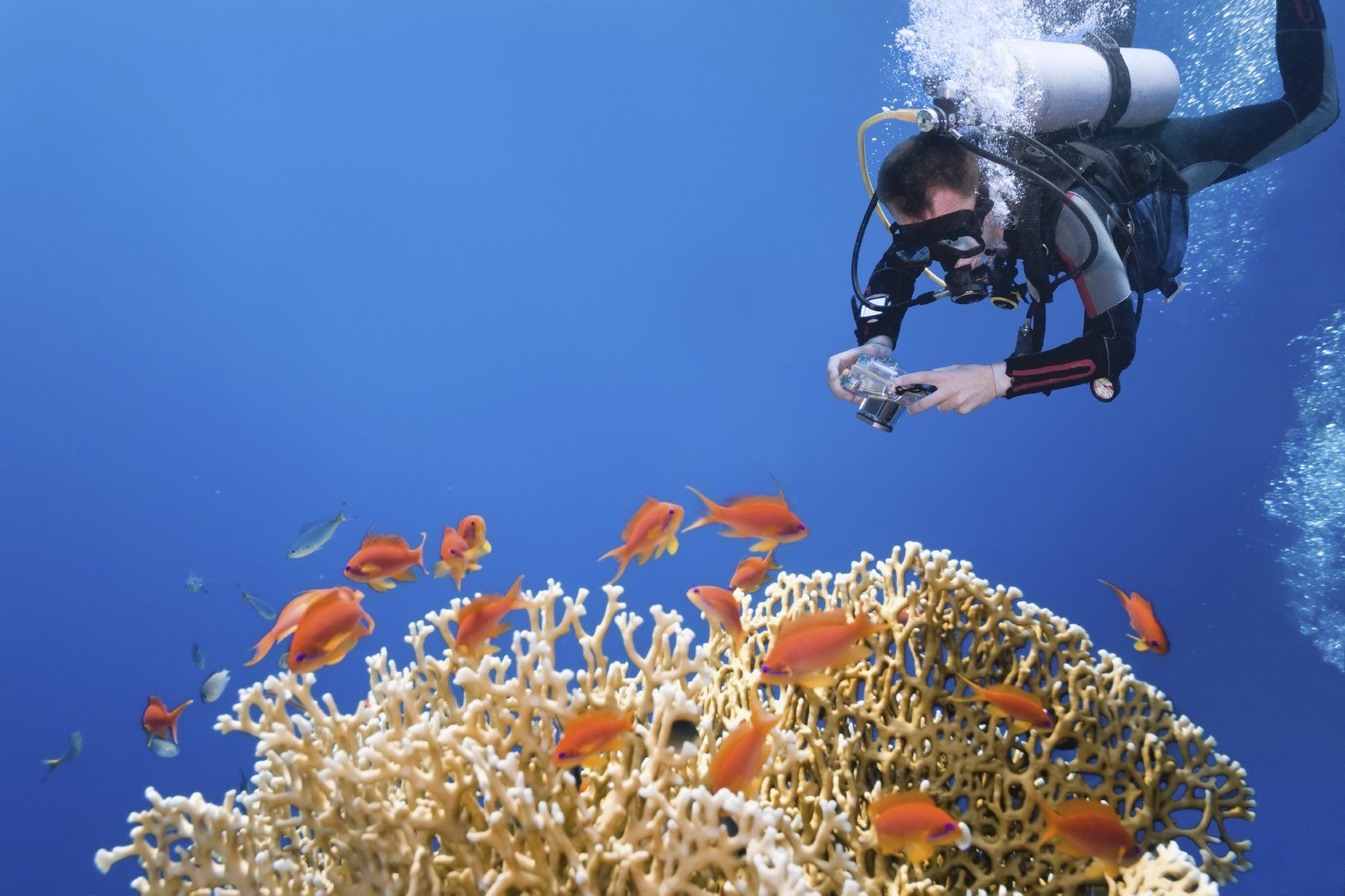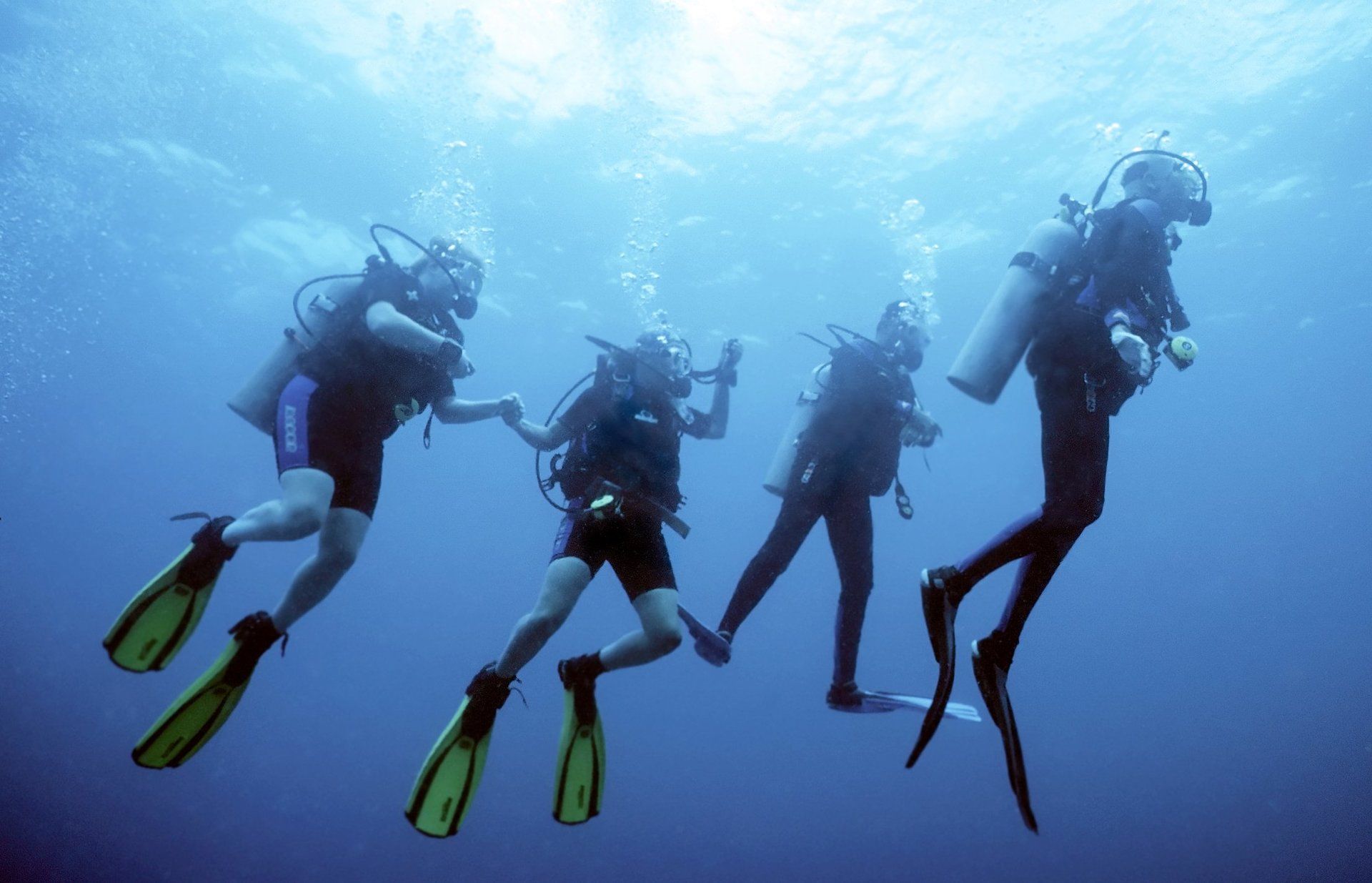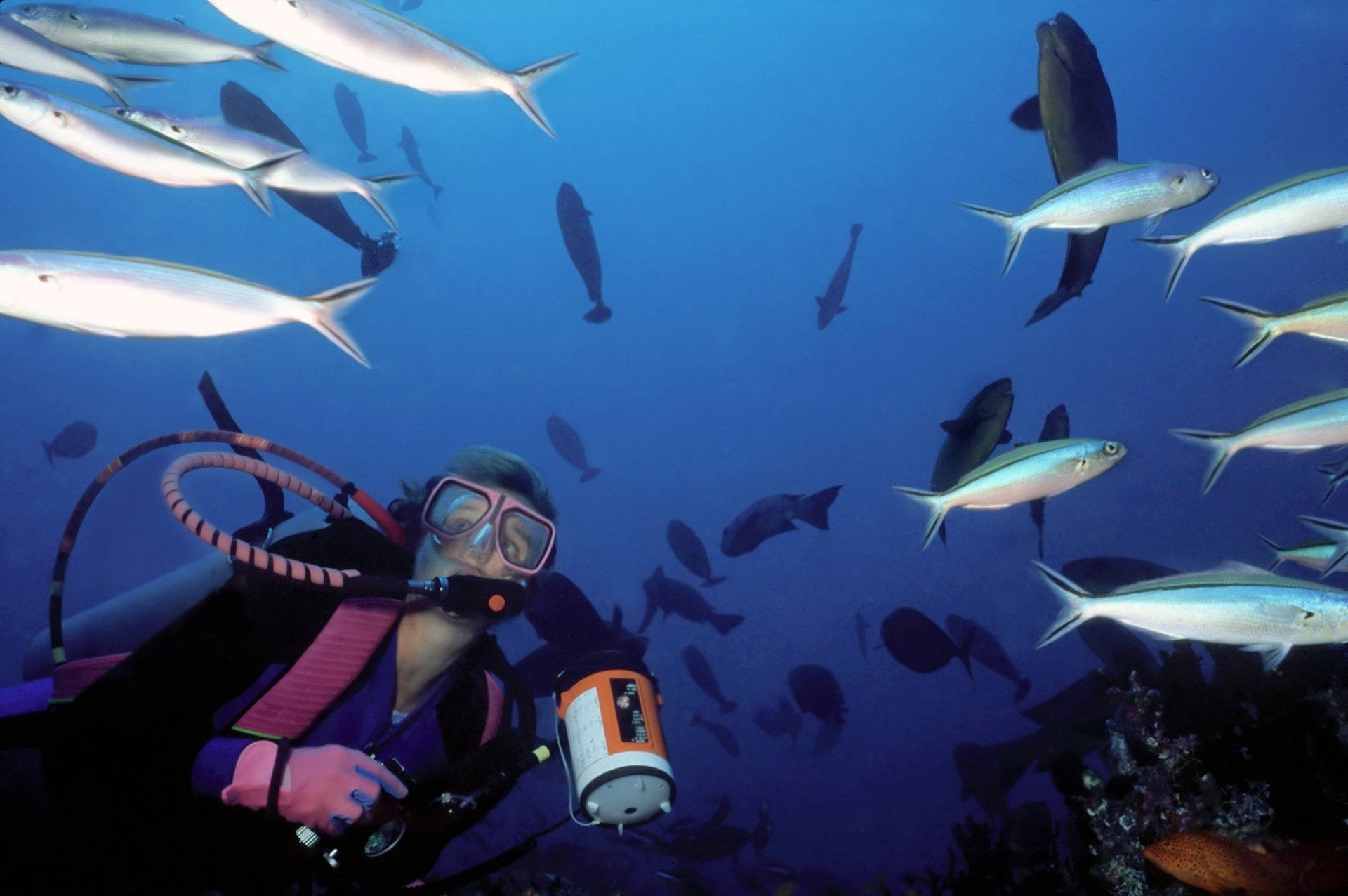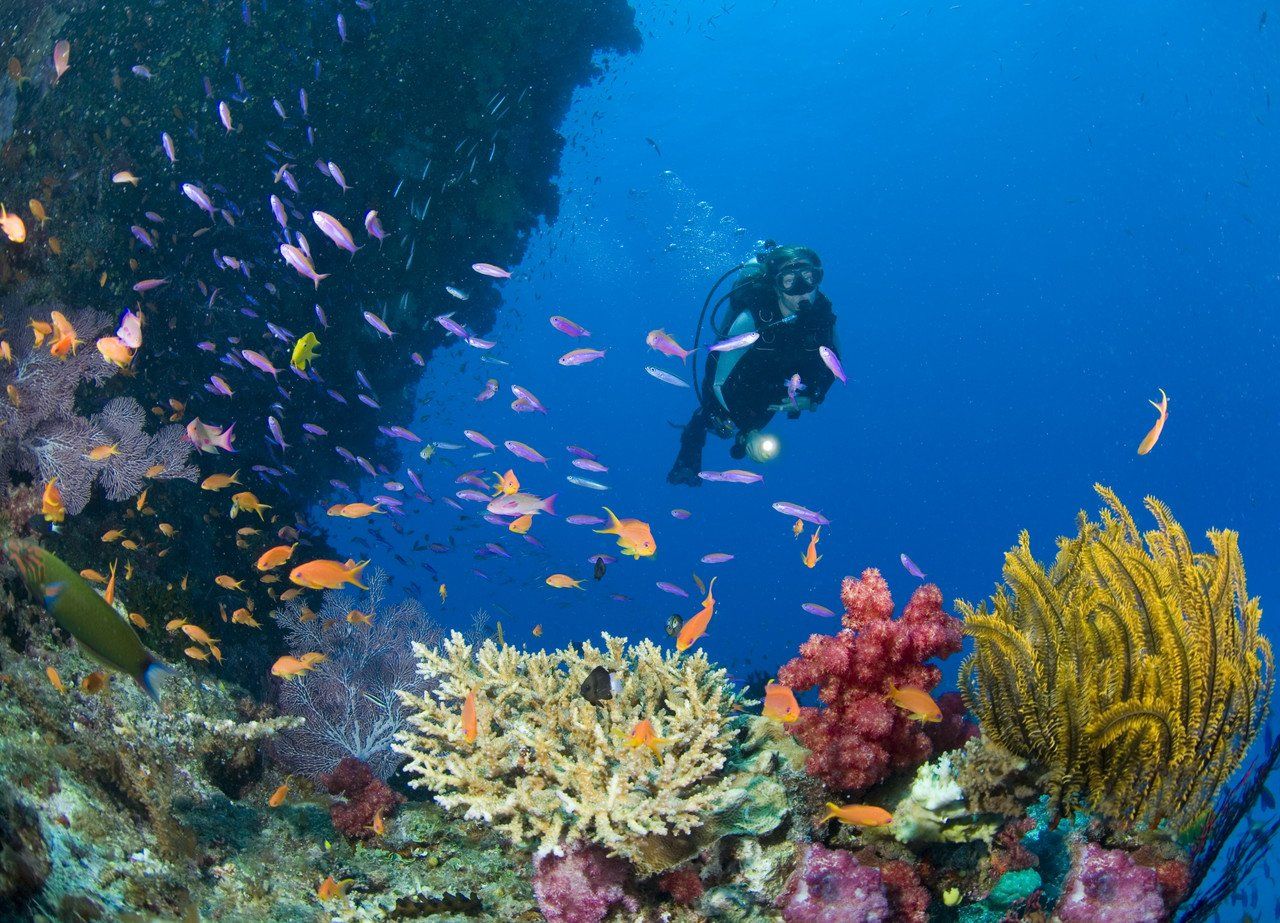Diving fitness examination / consultation
Health and performance are important requirements for diving
With our diving medical health check-up we would like to pay special attention to the preservation of your health - and thus performance in diving. Our diving medical health check-up programs are combined with modern technical procedures according to scientifically founded findings of preventive medicine. You benefit from the competence of our team of doctors, who have many years of experience.
Challenge
Diving medicine deals with the effects on the human body caused by its presence in and under water. Of importance here are the effects of immersion (= submerging the body in a liquid), the effects of increased ambient pressure on the body and diving equipment and the effects of breathing gases under increased pressure conditions.
In summary, diving medicine is concerned with the prevention, diagnosis and therapy of dangers that can arise in, around and under water.
Diving suitability information
Recreational diving is becoming increasingly popular and the number of both beginners and experienced divers continues to rise. To prevent diving accidents, regular medical checks have been recommended or even prescribed for some time now.
How often should you be examined?
The examination interval depends on the age.
The GTÜM recommends the investigation:
- every 3 years, if you are under 40 years old, or
- every year if you are 40 years or older
1.1. Diving as a sport
When diving, the ambient pressure increases by approximately 1 bar per 10 m water depth. The pressure changes mainly affect the air-filled body cavities and the breathing gases. Other factors that play a role are immersion, increased airway resistance, cold and dry air, changing environmental conditions such as visibility and lack of ground contact, cold and unpredictable exertion. Preventive examinations for other sports, including flying, are therefore not the same as a suitability assessment for diving.
1.2. Legal Aspects
For recreational diving, in contrast to professional diving, there are currently no legal regulations and no obligation to undergo a medical examination. The medical examination for recreational diving is a consultative act with a preventive character. For insurance and liability reasons, no one should dive without a medical certificate confirming the absence of health concerns. The clarification and detailed consultation by the doctor should be recorded with a note.
1.3. examination forms
The examination form for the medical examination of recreational divers (GTÜM e.V. Edition 1992) was developed in cooperation with German diving associations. This is replaced by the documentation form for the performance of a medical examination of recreational divers according to the guidelines of the GTÜM e.V. of 1998.
This form, with an optional head design, is recommended for all German-speaking diving associations. The note "according to the guidelines of GTÜM e.V. Edition 1998" and the GTÜM logo may only be used by doctors with the qualification "Tauchmedizin GTÜM" or "Tauch- und Überdruckmedizin GTÜM". Samples of examination forms with individual head design must be submitted to GTÜM e.V. for approval.
2.1. Medical qualification
The examining physician must be familiar with the special dangers of the various diving procedures (e.g. mixed gas diving, cave diving, wreck diving, open and closed systems) in order to be able to inform and advise the test person about existing peculiarities, risks and physical conditions. A sufficient qualification for the consultation is given, for example, by the "Taucherarzt GTÜM".
2.2. The role of the examining physician
The examination procedure includes a thorough physical examination.
The assessment of the psyche is part of this examination.
Under consideration of the radiation exposure and the expected benefit of a radiological thoracic examination, a chest X-ray is not obligatory at the initial examination. However, if the patient's medical history or examination findings are abnormal, further diagnostics, e.g. by means of X-ray and CT, are necessary.
If aptitude cannot be fully assessed after the examinations listed in Part B of the Documentation Sheet, the examination shall be expanded in accordance with the clinical picture or the assessment shall be obtained from specialists or experienced diving physicians. The final assessment shall be made by the physician conducting the initial examination.
An extended examination may also be necessary in the case of volunteer diving instructors, competitors or during the initial examination.
The result of the examination should be discussed with the candidate or his orher legal guardian.
2.3. Assessment
The assessment includes:
- no health risks
- no health risks under certain restrictions
- persistent health risks
Restrictions are generally to be made to:
- Adolescents under 16 years of age for diving with compressed gas equipment (see also age limits)
- disabilities
Disabilities are present in candidates with physical defects, deficiencies and functional limitations, as well as diseases for which a relative contraindication is listed under point 3.
Candidates with limited diving ability in particular shall be required to demonstrate a necessary degree of personal responsibility. Diving instructors and, if applicable, the diving partners must be informed about the restrictions of diving suitability!
The limitation in judgement does not refer to specific diving equipment or diving depths, but to diving conditions and circumstances. These are for example the requirements to dive in open water only as a member of a group under the supervision of an experienced diver and/or the avoidance of special degrees of difficulty such as ice or cave diving, diving in strong currents or unfavourable environmental conditions. The determination of the "restriction" is at the discretion of the examiner, but should be based on general standards and guidelines.
The certificate of judgement is issued on a separate sheet, for example on the GTÜM e.V. form, which is now attached to the examination form.
2.4. Age limits
In principle there are no age limits for diving. For all candidates, the overall medical aspect as well as mental and cardiopulmonary performance is decisive. Up to the age of 8 years an incomplete lung maturation is to be assumed. The physical development of the young people is individually variable. From 16 years of age and upwards, unrestricted fitness can generally be assumed.
2.5. Gender
There are no relevant differences between men and women for diving. One exception is pregnancy. Due to the risk of possible fruit damage, diving with compressed gas equipment should not be used during pregnancy.
2.6. Follow-up examinations
If the findings are inconspicuous, the patient should be examined after three years, and after one year if over 40 years of age. Shorter intervals can also be specified for certain findings or no "concerns under certain restrictions".







